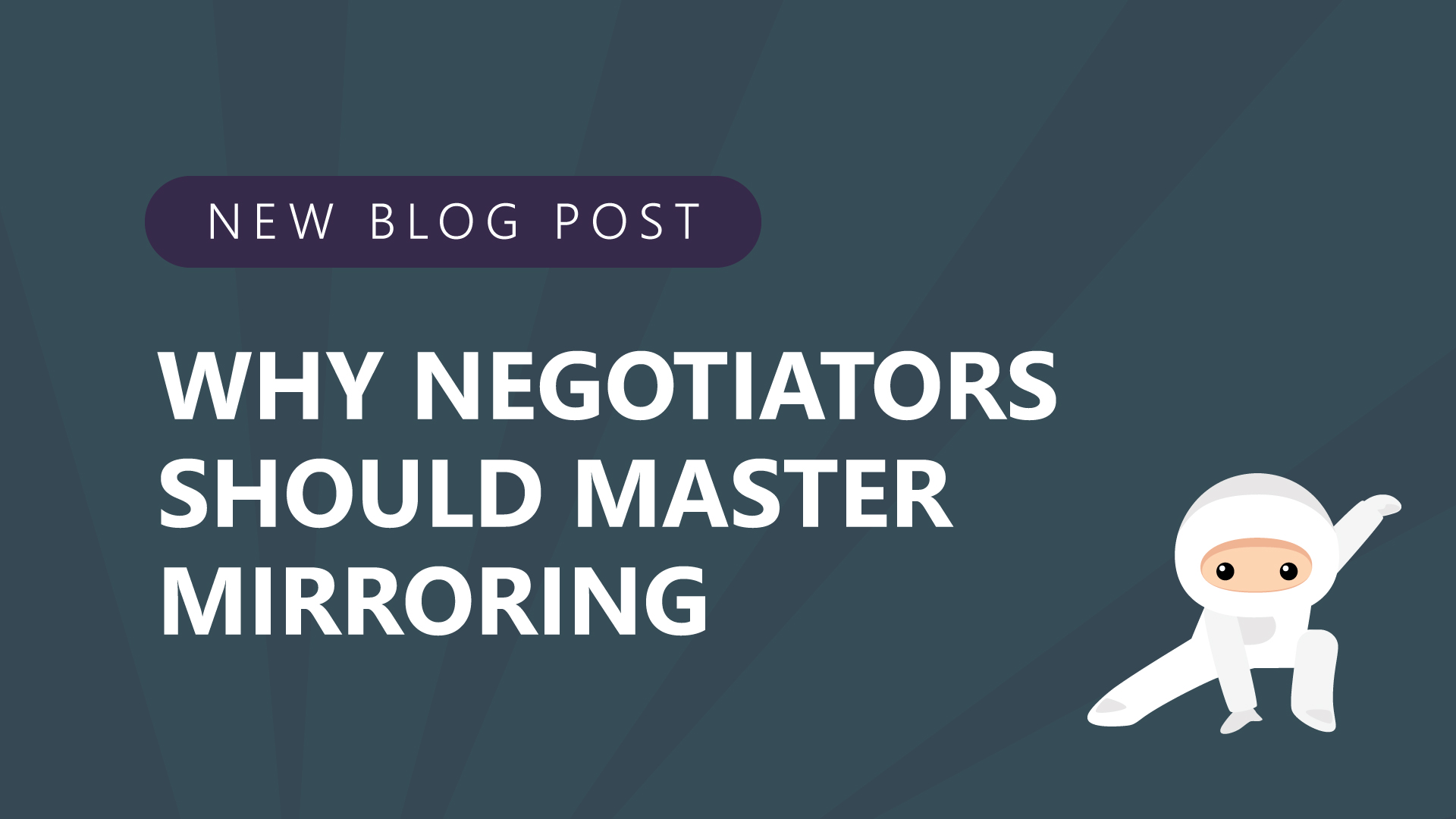Banachek—a famous mentalist—has mastered the art of mirroring (as well as other psychological means of persuasion). In an episode of Negotiations Ninja, he joined me to share some of his expertise and what he’s found especially useful during his career.
What is the concept of mirroring?
Most negotiators are likely familiar with the concept of isopraxism—more commonly known as mirroring. Mirroring is echoing what someone else is doing in a subtle way. Perhaps you echo their body movements, such as the way they tilt their head or move their hands. Perhaps you match their tone of voice or certain utterances they make. Many people do it subconsciously. Men and women labeled as “charismatic” tend to have a natural knack for mirroring or—Like Banachek—it’s a practice they’ve cultivated from years of experience.
Why is mirroring important?
Mentalists and entertainers have learned to mirror people on a very subtle level, to the point where they’re immensely persuasive. They don’t just engage people—they make you feel noticed and important. You’ve done your job well if a crowd leaves feeling as if you connected with each and every one of them.
When you mirror people and engage in eye contact, it creates an emotional level of connection—they intuitively feel you understand and are empathizing with their situation. This doesn’t only help people feel comfortable with you, but it is associated with more favorable outcomes. Waitresses get higher tips. Salespeople sell more of their products. Negotiators come to a more agreeable solution.
How mirroring correlates with anchoring
Car salesmen are another genre that has mastered mirroring and anchoring. Most car salesmen are charismatic, friendly, and skilled at drawing you in. They mirror your tone of voice and monitor your body language.
You’ll also notice when you talk to car salesmen that they engage with you about your family: your grandparents, your parents, and your children. They help you think about memorable trips you’ve taken. When you share a positive memory associated with a car, they anchor you to that memory.
Then, when you take the care out for a test drive, those positive memories come flooding back to you. They help anchor you to the car—and increase the odds of the salesman making the sale. Banachek points out that salesmen continue mirroring you, even when you’re in the vehicle.
It’s NOT about manipulation
Banachek points out that concepts such as anchoring and mirroring can be viewed negatively—akin to manipulation. But to him, it’s never been about that. He focuses on sheer honesty. He uses anecdotes, comedy, and self-deprecation to connect with people. He opens up emotionally so others will do the same.
People naturally trust him because he is open and genuine. You must approach negotiation with the same mindset. Focus on using these techniques to foster trust and build a connection—not as tools of manipulation, but as a means of building a relationship.
Banachek shares his history and how he launched his career as a mentalist in an episode of Negotiations Ninja. He also shares more strategies that he uses to sell himself and his act that you wouldn’t necessarily think of. Give it a listen!

